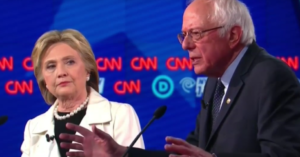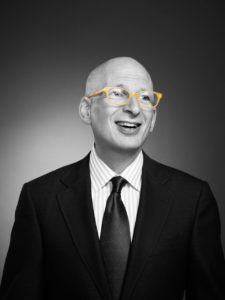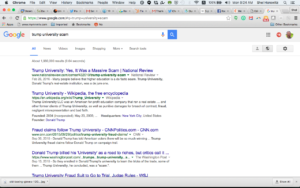Why I’ve Boycotted My Neighborhood Theater Since 1969
If you don’t think customer service is part of marketing—and maybe the most important part—this post is must reading for you.

Great Service Builds a Business
Great customer service builds long-term customers, relationships, and ambassadors for your brand! Just ask Nordstrom. They surely don’t compete on price.
Ask Southwest Airlines, which made its original reputation on low prices but now is known for exemplary service in an industry that generally treats its customers like crap. Many times, I’ve actually paid a bit more to fly Southwest, because I know I can check bags for free and—more importantly—change my ticket if there’s an issue.
Southwest earned my loyalty by saving an expensive cruise vacation that was about to go up in smoke when our airport closed for a snowstorm and we weren’t going to make our connection to the cruise ship. Southwest cheerfully if perplexedly let us shift to the following day in a different city, so we could board at the ship’s first port-of-call.
These days, I go to the Southwest website first, and only check discount travel sites if I can’t get a good flight there. Have I told people they should fly Southwest? You betcha. I just told you and a few thousand others, in fact.
Crappy Service Kills a Brand
Yet no amount of (expensive) marketing will undo bad customer service. This is something I talk about in many of my books, including the most recent, Guerrilla Marketing to Heal the World.
I have boycotted a number of businesses that treated me shabbily—including the movie theater in the New York City neighborhood I grew up in that sold my 12-year-old self a full-price adult ticket and made me sit in the children’s section. I have not been back in the 47 years since—because I felt wronged and discriminated against.
But the worst was our local Toyota dealership. We had a long and extended bad interaction with them that culminated in a phone call, “you have 24 hours to get your car out of our lot—and by the way, the engine is in pieces in the trunk.”
Not only did I write a five-page complaint letter with full documentation to the VP of customer relations for Toyota USA (which gave a too-little-too-late form-letter make-good offer a full year later), not only did I never buy as much as a tube of touch-up paint from that dealer for the rest of their career and was not sorry when they closed—but the next time I went car shopping, I didn’t even seriously consider Toyota and bought a competing brand. That was the first time I bought a car not built or designed by Toyota since 1981; they threw away decades of strong brand loyalty. Over the 30 years or so that likely remained in my car-buying lifetime at that moment, they probably cost themselves well into the six figures.
And no amount of expensive advertising will counter the disconnect if you don’t walk your talk, even if it’s not a customer service issue. If you have a sign posted in your store noting that you’ve empowered your employees to solve customer issues, as the late Blockbuster Video did, that should actually be the policy. It wasn’t for Blockbuster, in my personal experience. And they’re gone.
And these days, a frustrated customer doesn’t just tell ten friends. I just read recently that Dave Carroll’s video, “United Breaks Guitars”—seen by nearly 17 million people—actually lowered the airline’s stock price. The video also garnered tons of mainstream media coverage (including CBS and CNN), many new fans for Carroll and his band, the Sons of Maxwell, and even a book contract (the book—big surprise—is called United Breaks Guitars. And think about all those “companysucks.com” websites out there damaging brands.
In Guerrilla Marketing to Heal the World, I cite an auto-industry study that only 40 percent repurchase. So it’s up to you to turn satisfaction first into delighted amazement, and then into loyalty, and finally into ambassadorship for your brand?
Timothy Keiningham and Terry Varva, authors ofThe Customer Delight Principle: Exceeding Customers’ Expectations for Bottom-Line Success, point out that marketing’s primary role is to communicate “the wants, needs, and expectations of current and potential customers,” [emphasis mine] so the business can “create and distribute products or services that more closely address and answer these inherent needs.” If meeting the needs of current customers doesn’t encompass customer service, you’re in trouble.
Please share your customer service successes and disasters (either as a vendor or a s a customer) in the comments section, below.








